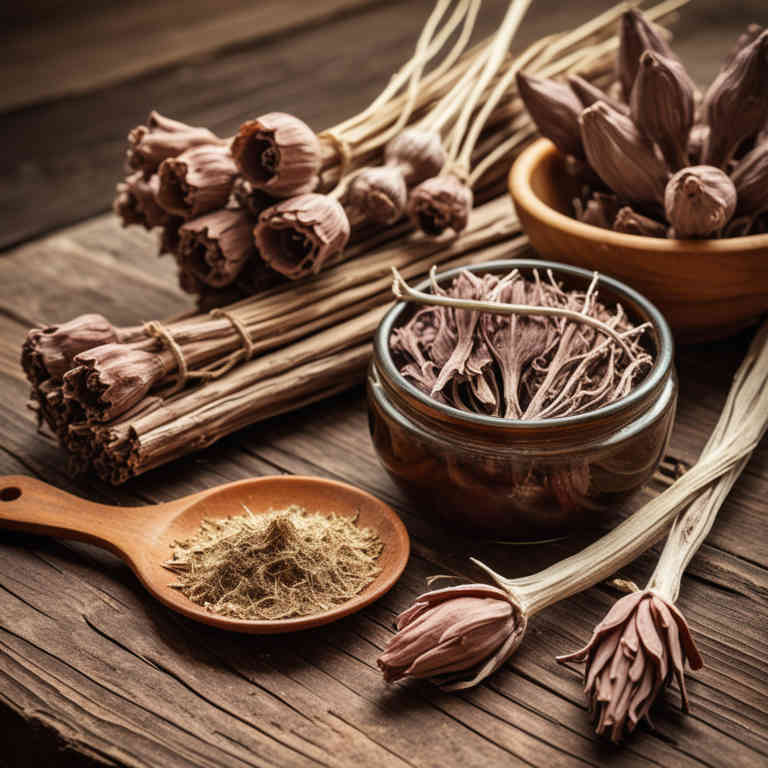Rheum officinale decoction for medicinal use

Rheum officinale decoction is a traditional herbal preparation made by boiling the rhizomes of the plant Rheum officinale, commonly known as Chinese rhubarb.
This decoction is used in herbalism to support digestive health and promote bowel movements due to its mild laxative properties. It is often prescribed to alleviate constipation and cleanse the intestines. The preparation is valued for its ability to balance internal heat and detoxify the body according to traditional Chinese medicine principles.
It is typically used in formulations rather than as a standalone remedy.
Uses
Rheum officinale decoction has been used to treat digestive disorders, skin conditions, and inflammatory diseases for centuries.
Historically, it was valued in traditional Chinese medicine for its ability to clear heat and detoxify the body. In Ayurvedic practices, it was used to address constipation and as a purgative. Modern research suggests it may have anti-inflammatory and antimicrobial properties, supporting its use in treating gastrointestinal issues and skin infections.
Today, it is still employed in herbal formulations for its potential therapeutic benefits.
Benefits
Rheum officinale decoction has health benefits such as promoting digestive health, reducing inflammation, and supporting detoxification.
It is traditionally used to treat conditions like constipation, skin disorders, and inflammatory diseases due to its high content of anthraquinones. The decoction may also help in regulating bowel movements and improving gut motility. Its anti-inflammatory and antioxidant properties contribute to overall wellness and immune support.
This herbal preparation is valued in traditional medicine for its ability to cleanse the body and enhance internal balance.
Constituents
Rheum officinale decoction active constituents include alkaloids, tannins, anthraquinones, and mucilage.
These compounds contribute to the decoction's traditional use in promoting digestive health and reducing inflammation. Alkaloids such as emodin and chrysophanol have been associated with antimicrobial and laxative effects. Tannins provide astringent properties that may help in soothing the gastrointestinal tract.
Mucilage acts as a demulcent, offering protective effects on mucous membranes.
Preparation
To make Rheum officinale decoction, start by washing 10-15 grams of dried Rheum officinale root under running water.
Place the root in a pot and add 1 liter of cold water, then bring the mixture to a boil over medium heat. Reduce the heat and let it simmer for about 20-30 minutes to extract the active compounds. Strain the liquid through a fine mesh strainer or cheesecloth to remove any solid particles.
Allow the decoction to cool slightly before consuming, typically 1-2 times daily as needed.
Side Effects
Rheum officinale decoction may lead to gastrointestinal discomfort, including nausea, vomiting, and diarrhea, due to its strong laxative properties.
It can also cause dehydration if consumed in large quantities or without adequate fluid intake. Prolonged use may result in electrolyte imbalances, which can affect heart function and muscle coordination. In some cases, it may irritate the stomach lining, leading to inflammation or ulcers.
Individuals with sensitive digestive systems or pre-existing gastrointestinal conditions should use this preparation with caution.